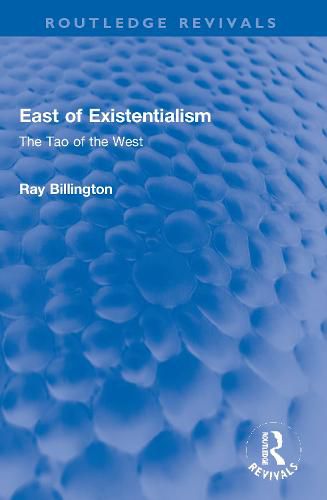Readings Newsletter
Become a Readings Member to make your shopping experience even easier.
Sign in or sign up for free!
You’re not far away from qualifying for FREE standard shipping within Australia
You’ve qualified for FREE standard shipping within Australia
The cart is loading…






First published in 1990, East of Existentialism was written to explore new perspectives on eternal questions such as 'Who am I?', 'Why am I here?', and 'Where am I going?'.
The book brings together insights from existentialism in the West and Hinduism, Buddhism, and Taoism in the East, and presents practical case studies throughout to show the student how apparently abstruse themes relate to real-life situations. Divided into three parts, the first considers major Western contributions to the themes of human nature and destiny. The central section examines the connection between existentialism in the West and dominant philosophical schools in India and China. The last three chapters explore the relevance of Eastern ideas to Western thought, not only to provide philosophical theory but also to offer a greater understanding of moral and social dilemmas and of practical living. A full glossary explains the technical terms used in the book.
East of Existentialism will appeal to those with an interest in philosophy and religious studies.
$9.00 standard shipping within Australia
FREE standard shipping within Australia for orders over $100.00
Express & International shipping calculated at checkout
First published in 1990, East of Existentialism was written to explore new perspectives on eternal questions such as 'Who am I?', 'Why am I here?', and 'Where am I going?'.
The book brings together insights from existentialism in the West and Hinduism, Buddhism, and Taoism in the East, and presents practical case studies throughout to show the student how apparently abstruse themes relate to real-life situations. Divided into three parts, the first considers major Western contributions to the themes of human nature and destiny. The central section examines the connection between existentialism in the West and dominant philosophical schools in India and China. The last three chapters explore the relevance of Eastern ideas to Western thought, not only to provide philosophical theory but also to offer a greater understanding of moral and social dilemmas and of practical living. A full glossary explains the technical terms used in the book.
East of Existentialism will appeal to those with an interest in philosophy and religious studies.